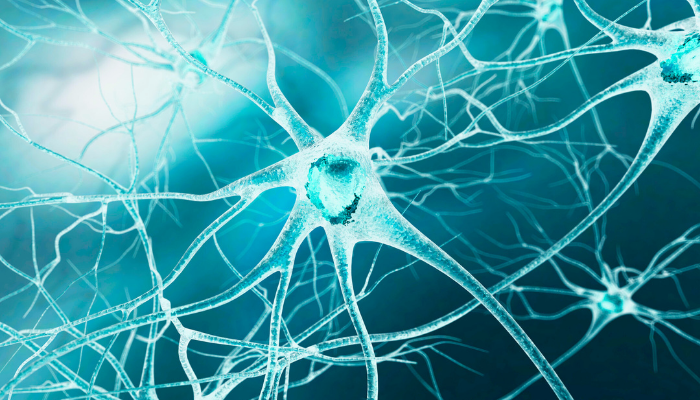Magnesium is like Snoop Dogg at the Summer Olympics 2024 in Paris –everywhere, doing everything, all at once. He’s that one rapper with endless side quests. Similarly, Magnesium is a vital mineral that works its wonders in your body.
Right now, however, we’re facing a one-two punch: a neglected epidemic of chronic disease and widespread nutrient deficiency.
Magnesium, alongside a few other crucial vitamins and minerals, often gets sidelined in the hustle of medical training. Doctors learn about it in theory, but in day-to-day clinical care, it sometimes slips through the cracks.
Not to scare you, but on average, medical students in the United States spend fewer than 20 hours on nutrition education throughout their entire four years of medical school. This speaks volumes about the alarming rate of chronic diseases in the US.
Globally, many health providers are underprepared to address the essential minerals’ role in maintaining metabolic balance and overall health.
Curious about how low Magnesium levels affect you? Read on to explore the latest science and find out how Magnesium can enhance your longevity. This Avea article offers a comprehensive guide to Magnesium and its benefits.
In this article
Free guide to reverse your biological age

- Master the science of rejuvenation.
- Apply proven tips to turn back the clock.
- Transform your health with top longevity specialists.
What is Magnesium?
Magnesium is the fourth most abundant mineral in our body, trailing only behind Calcium, Sodium, and Potassium.
For a typical 70 kg adult, that’s about 25 grams of Magnesium, mostly tucked away in bones, muscles, and soft tissues. Less than 1% of it circulates in our blood.
The Serum Magnesium Concentration (SMC) is usually between 75–95 mmol/L, but some experts argue that anything below 85 mmol/L could signal a deficiency.
How important is Magnesium?
This mighty mineral is a cofactor in over 300 enzyme systems, powering processes from energy production to DNA synthesis.
It’s especially concentrated in mitochondria, your cell’s powerhouse, where it helps generate ATP (our energy currency). Magnesium-bound ATP (Mg-ATP) is the bioactive form, making Magnesium a cornerstone of cellular energy.
Magnesium’s roles are vast and varied:
- Protein synthesis
- Muscle contraction
- Nerve function
- Blood glucose control
- Hormone receptor binding
- Blood pressure regulation
- Cardiac excitability
- Transmembrane ion flux
- Calcium channel gating
It is needed for oxidative phosphorylation and glycolysis. These are key steps in turning the food you eat into usable energy.
Magnesium is also vital for building RNA and DNA, which are the molecules that carry your genetic information and are involved in making proteins.
So, maintaining adequate magnesium levels is essential for both energy production and the upkeep of your genetic blueprint.
Common nutrient deficiency
Researchers worldwide suggest that over 90% of the global population could be deficient in Magnesium.
A recent study indicates that 56-68% of Americans don’t consume enough magnesium to meet the recommended daily allowance (RDA).
However, this RDA is often viewed as too low, not accounting for the demands of modern life.
The stresses and rapid pace of contemporary living can deplete Magnesium levels, highlighting the need for increased intake.
Here are a few factors that might be contributing to this widespread Magnesium deficiency:
- Processed foods: Many processed and some nonorganic foods have reduced levels of Magnesium. Since most grocery store foods are processed, they often lack sufficient Magnesium.
- Common foods: Staples like meat (18-29 mg/100g), sugar (0 mg/100g), and white flour (20-25 mg/100g) provide less than 20% of the daily Magnesium requirement.
- Cooking methods: Cooking and boiling can significantly reduce the Magnesium content in food.
- Vitamin D deficiency: Reduced gastrointestinal absorption of Magnesium occurs with Vitamin D deficiency, which is prevalent in Western cultures.
- Medications: Some commonly used medications, including certain antibiotics, antacids, and antihypertensive drugs, can decrease Magnesium absorption.
- Pesticides: Some commonly used pesticides can chelate minerals, potentially decreasing Magnesium content in soil and crops.
- Excess excretion: Alcohol use and both type 1 and type 2 diabetes can lead to increased excretion of Magnesium.
- Smoking: Cigarette smoking reduces plasma Magnesium concentration.
- Soil depletion: Fertilisation techniques that don’t provide a full spectrum of required minerals lead to increased soil depletion of essential nutrients, including Magnesium.
- Monoculture agriculture: The expansion of monoculture agricultural techniques tends to consume and deplete specific nutrients, including Magnesium.
- Ageing: Magnesium absorption decreases by as much as 30% with ageing.
These factors collectively contribute to the Magnesium intake shortfall, leading to potential health issues.
The real challenge lies in recognising this deficiency. Many people might experience symptoms without realising they are related to low Magnesium levels. And truth be told, doctors aren’t really helping either.
How to test Magnesium levels?
Measuring magnesium levels in your body can be tricky. The most common test is the total Serum Magnesium Concentration (SMC), but it doesn’t show how much Magnesium is inside your cells or whole body.
This is because less than 1% of your body’s Magnesium is in your blood. Your body keeps blood levels normal, even cellular Magnesium levels are low.
Better tests like serum ionised Magnesium, tissue Magnesium, or Magnesium retention tests exist, but they aren’t widely available.
If you want a more detailed overview of your Magnesium levels, ask your doctor about the available testing options besides SMC.
Signs and symptoms of Magnesium deficiency
Magnesium deficiency can manifest in various ways, often mimicking other health issues.
Common signs and symptoms include:
- Muscle cramps and spasms
- Fatigue and weakness
- Nausea and vomiting
- Loss of appetite
- Numbness and tingling
- Heart arrhythmias
- Mental disorders such as anxiety and depression
- Osteoporosis
- High blood pressure
- Migraines and headache
What is Magnesium good for?
A Magnesium deficiency is not only associated with the symptoms mentioned above, but also linked to various disorders and diseases.
Recognising these connections highlights the broader impact of Magnesium deficiency on overall health.
Scientists have extensively studied Magnesium’s benefits at both cellular and systemic levels.
Here’s a summary of the positive aspects of Magnesium for longevity:
1. Magnesium and asthma
Magnesium might help with asthma by easing severe bronchospasms, though the exact mechanism is unclear.
Intravenous magnesium sulfate has shown promise in improving breathlessness during severe asthma attacks and reducing hospitalisation needs when combined with standard treatments. However, using it via nebuliser hasn’t proven effective. [1], [2], [3]
2. Magnesium, Vitamin D, rickets, and osteoporosis
Magnesium helps convert Vitamin D into its active form, essential for calcium absorption and bone health [4]. Vitamin D sufficiency may then increase absorption of Calcium and Magnesium by as much as 300%.[5]
Magnesium deficiency can lead to conditions like rickets and osteoporosis, and supplementation can improve bone density and reduce fractures. [6], [7] So, if you’re taking Vitamin D supplements without enough Magnesium, you might have to reconsider again.
3. Magnesium and muscle cramps
Whilst Magnesium supplements show some benefit for muscle cramps, results aren’t consistently significant. But we do know that they are more effective in pregnant women.
Muscle cramps can also be due to deficiencies in other minerals like Calcium or Potassium, making it hard to pin down Magnesium as the sole solution. Regardless, it can help with relaxation and contraction of your muscles.[8]
4. Magnesium and pregnancy
Magnesium deficiency during pregnancy can lead to complications like preterm births and low birth weight. Supplementation can improve pregnancy outcomes and lower blood pressure in pregnant women. Magnesium sulfate is also effective in treating preeclampsia by preventing seizures and reducing complications.[9], [10], [11]
5. Magnesium and migraine headaches
This one is for those who find themselves constantly battling the dreaded migraines. Magnesium is highly recommended for migraines, reducing their frequency, duration, and intensity.[12]
Oral Magnesium supplements and intravenous Magnesium sulfate can significantly alleviate migraine symptoms, especially in cases with aura (37% responded with less pain).[13]
6. Magnesium, metabolic syndrome, and diabetes
Did you know that low Magnesium levels are common in metabolic syndrome and diabetes?[14]
A Magnesium-rich diet can significantly help mitigate the risks of these diseases. Studies show that higher Magnesium intake improves insulin sensitivity and reduces the risk of developing diabetes. Magnesium supplements also help manage blood sugar levels and improve lipid profiles in diabetics. [15], [16], [17]
7. Magnesium and depression
Let’s keep this short and direct, so you grasp its importance. Magnesium plays a key role in mental health by converting tryptophan to serotonin, a key mood-regulating neurotransmitter.
Magnesium supplements have been shown to help alleviate symptoms of depression and anxiety, and its deficiency is linked to increased depression risk.[18], [19], [20]
8. Magnesium, sleep, and Restless Leg Syndrome
Forget your red wine. Magnesium can improve sleep quality by acting as a natural relaxant. Supplements have been shown to enhance sleep efficiency and reduce insomnia severity. They also help manage restless leg syndrome, improving sleep quality in those affected.[21], [22]
9. Magnesium and smoking
Magnesium can help reduce nicotine cravings by inhibiting certain brain receptors involved in addiction.
Supplementation has shown to decrease the number of cigarettes smoked, making it a useful tool for quitting smoking. No need for patches and gums, which can still have their drawbacks.[23], [24]
10. Magnesium and cancer
Adequate Magnesium intake is also linked to a lower risk of certain cancers, such as colorectal cancer. Magnesium helps maintain cellular health and prevent abnormal cell proliferation, which can lead to cancer. [25], [26], [27]
11. Magnesium and Renal Calculi (kidney stones)
Magnesium can prevent kidney stones by binding with oxalates in the digestive tract, reducing their absorption and accumulation. Supplements have significantly lowered the formation of calcium oxalate stones in patients. [28]
12. Magnesium and heart health
Magnesium also got your back when it comes to heart health. Its deficiency can contribute to cardiovascular problems like arteriosclerosis and hypertension.
Supplements have been shown to help improve vascular function, reduce blood pressure, and lower the risk of sudden cardiac death. [29], [30], [31], [32]
13. Magnesium and cardiac arrhythmias
Magnesium is beneficial for treating various heart rhythm disorders, especially when combined with low potassium levels. It can help manage conditions like digoxin toxicity and serious atrial or ventricular arrhythmias.
In simple terms, think of Magnesium as a helper that makes sure your heart keeps a steady beat, working even better if your Potassium levels are balanced too.[33]
14. Magnesium and atrial fibrillation
Atrial fibrillation is a type of cardiac arrhythmia. Supplementing with Magnesium can reduce the incidence of atrial fibrillation, particularly after heart surgery. Low magnesium levels are linked to higher risks of developing this condition, and supplementation has proven effective in some cases. [34], [35], [36]
15. Magnesium, heart valve issues, and heart failure
Magnesium can improve symptoms in conditions like mitral valve prolapse and congestive heart failure. These are serious cardiac disorders that impair the heart’s function.
Long-term supplementation has shown to enhance survival outcomes and reduce symptoms in those affected.[37], [38]
16, Magnesium, chronic kidney disease, and dialysis
This mineral is also crucial for those with chronic kidney diseases. Magnesium levels can drop during dialysis, and supplementation have been shown to prevent complications like vascular calcification.
Maintaining adequate Magnesium levels is crucial for kidney health and reducing cardiovascular mortality in dialysis patients.[39], [40], [41]
17. Magnesium and metabolism
Magnesium also plays a crucial role in effective weight management and overall metabolic health. It helps manage lipid levels, improving cholesterol profiles and reducing the risk of atherosclerosis.
It can raise HDL (good cholesterol) and lower triglycerides and LDL (bad cholesterol) without the side effects of statins. How about considering Magnesium as your new workout buddy? [42], [43]
18. Magnesium, premenstrual syndrome, and hot flushes
Magnesium can alleviate symptoms of premenstrual syndrome and hot flushes in breast cancer therapy. Supplements have been shown to reduce pain, mood changes, and hot flushes effectively. [44], [45]
19. Magnesium and eye health
By now, you’ve probably understood how Magnesium is like that overachieving student who excels at everything– the one who’s great at sports, aces every test, and still finds time to volunteer.
Well, it also helps maintain eye health by supporting the proper function of enzymes that protect the lens and improve blood flow to the eyes. Magnesium has been shown to help prevent conditions like cataracts and glaucoma.[46], [47]
20. Magnesium, stress, physical performance, ageing, and longevity
We’ve all heard the phrase “ageing gracefully,” but who knew that Magnesium could be the secret sauce? Magnesium can mitigate the adverse effects of stress, improve physical performance, and support healthy ageing.
It helps reduce cardiovascular risks, improve muscle strength, and protect against age-related diseases. This mineral is like your body’s personal trainer, therapist, and fountain of youth all rolled into one. [48], [49], [50], [51], [52], [53]
21. Magnesium and neurologic conditions
Magnesium deficiency is linked to several neurological conditions, including ADHD and multiple sclerosis. Supplements can improve symptoms and cognitive function, making Magnesium a potential adjuvant therapy for mental health. Magnesium or Adderall anyone?[54], [55], [56], [57], [58], [59]
22. Magnesium and skin conditions
Magnesium is not just for your muscles and mind; it’s also a powerhouse for radiant skin.
Last but not least, Magnesium can benefit your skin health by enhancing hydration, reducing inflammation, and improving barrier function. It is also effective in treating conditions like atopic dermatitis and promoting overall skin health. [60], [61], [62]
How your diet influence your Magnesium levels
Before we explore the benefits of Magnesium supplementation, it’s essential to consider how various dietary factors can significantly affect your magnesium levels.
- Processed foods, such as white flour and rice, can lose up to 300-400% of their Magnesium content during processing.
- Phytic acid, found in foods like nuts, seeds, and grains, can reduce the absorption of essential minerals, including Magnesium.
- Glyphosate, a widely used pesticide, can chelate and reduce the availability of minerals in the soil and plants.
- Choosing traditional, less processed foods can greatly improve Magnesium intake. For example, using sourdough fermentation can enhance Magnesium bioavailability.
- Food selection is crucial for maintaining healthy Magnesium levels, especially in seniors, as its absorption decreases with age, potentially by more than 30%.
That’s why it’s important to understand your sources of Magnesium. Are you consuming enough daily?
Common food sources of Magnesium
Here are some common food sources of Magnesium, (in mg per serving or 100 gm).
| Seeds | Mg/serving |
|---|---|
| (i) Hemp seeds (100 gm) | 700 |
| (ii) Pumpkin seeds (100 gm) | 535 |
| (iii) Flax seeds (100 gm) | 392 |
| (iv) Brazil nuts (100 gm) | 376 |
| Carbohydrates | Mg/serving |
| (i) Whole wheat bread (2 slices) | 46 |
| (ii) Baked potato (3.5 ounces) | 43 |
| (iii) Rice, brown rice (1/2 cup) | 42 |
| (iv) Kidney beans (1/2 cup) | 35 |
| (v) White rice (1/2 cup) | 10 |
| Greens | |
| (i) Boiled spinach (1/2 cup) | 78 |
| (ii) Avocado (cubed 1 cup) | 44 |
| (iii) Broccoli (chopped, cooked 1/2 cup) | 12 |
| Others | |
| (i) Yoghurt (low-fat, 8 ounces) | 42 |
| (ii) Milk (8 ounces) | 24–27 |
| (iii) Farmed Atlantic Salmon (3 ounces) | 26 |
| (iv) Cooked halibut (3 ounces) | 24 |
| (v) Roasted chicken breast (3 ounces) | 22 |
| (vi) Chopped and cooked beef (3 ounces) | 20 |
| (vii) Apple | 9 |
| (viii) Raw carrots (one medium) | 7 |
| (ix) Raisins (1/2 cup) | 23 |
The best Magnesium supplement
When choosing the best Magnesium supplement, you want to separate fact from fiction.
Here are the top 5 rules to keep in mind when choosing a longevity supplement:
- science is at the core of the company
- the supplement works by addressing the hallmarks of ageing at the cellular level
- data exists that support the benefits of the ingredients in preventing or eliminating age-related diseases
- it has no side effects
- the supplement contains natural ingredients that work as a team
Studies show that Magnesium works best when paired with Vitamin D and Omega-3, as these ingredients enhance each other’s benefits.
Vitamin D, for instance, requires Magnesium for its conversion into its active form, whilst Omega-3 can further improve Magnesium absorption and effectiveness.
Combining these nutrients ensures you get the maximum benefit from your supplement, supporting overall health more effectively.
Avea’s Essentials
A standout option is Avea’s Essentials, which is packed with 100% vegan, essential micronutrients including Vitamin D3, Vitamin K2, Zinc, Magnesium, and Omega-3.
Essentials: the foundational nutrients for peak health

- Address common nutrient deficiencies like Magnesium, Omega-3, and Vitamin D.
- Support immune and overall health.
- Enhance your energy and vitality.
This comprehensive formula supports your immune system, brain, and heart health, helping you build a solid foundation for overall well-being.
The name Essentials says it all. This Avea supplement provides essential nutrients that are the cornerstone of optimal health, and should be taken daily to ensure your cells get what they need.
Double-testing in Switzerland guarantees that our ingredients are pure, potent, and free from contaminants, delivering a reliable product that is loved by over thousands of happy customers.
Different ways to boost Magnesium levels
If you’re one of those who find supplements tough to tolerate, you might be interested in transdermal options.
Though research on their absorption is still limited, some people also find relief using products like lotions, creams, sprays, oils, and bath salts to boost their Magnesium levels.
For those keen on innovation, there are even more experimental methods on the horizon, such as nebulized Magnesium, eye and ear drops, and vaginal douches.
Keep in mind that Magnesium can interact with various medications. Some drugs, like proton pump inhibitors, can lower your Magnesium levels, while others, including certain psychoactive agents, might increase them.
Magnesium recommended dosage
According to the Institute of Medicine (IOM), the recommended maximum dose for Magnesium supplements is 350 mg per day to avoid potential side effects, primarily gastrointestinal.
If you have kidney issues, you need to be particularly cautious as you’re at a higher risk for adverse effects.
But for most people, the recommended daily intake of Magnesium from all sources (including diet and supplements) is around 310-420 mg per day, depending on age, sex, and life stage. For instance, adult women generally need about 310-320 mg, whilst adult men need 400-420 mg.
Given Magnesium’s half-life of 42 days, long-term supplementation is recommended.
But remember, even when taking supplements, you need to make sure your lifestyle also supports healthy Magnesium levels.
Eating a balanced diet rich in Magnesium-containing foods and managing stress are crucial for maintaining optimal Magnesium levels and overall health.
What’s the best time to take Magnesium supplements?
The best time to take Magnesium supplements is typically in the evening or before bed. Magnesium promotes relaxation by boosting neurotransmitters like GABA and regulating melatonin, aligning with your circadian rhythm (natural sleep-wake cycle).
It also helps relax muscles and lowers cortisol levels, reducing stress. Taking Magnesium at night enhances these calming effects, potentially improving your sleep.
If you experience any gastrointestinal discomfort, try taking it with meals to help absorption. You can also experiment with timing to find what works best for you.
Keynote from Avea
Magnesium deficiency might be more common than you think, yet it often goes unnoticed.
This vital mineral supports many essential processes in your body and can help manage various serious conditions, from migraine headaches to metabolic syndrome.
As the role of Magnesium in health becomes clearer, it’s evident that better training in nutritional science is needed to spot and address deficiencies.
By staying informed about Magnesium and its benefits, we hope you can tackle common health issues more effectively and boost your overall well-being.
This Avea article is a summary of a review that assesses available medical and scientific literature on health issues related to Magnesium. Dive deeper into the scientific paper here.
References













